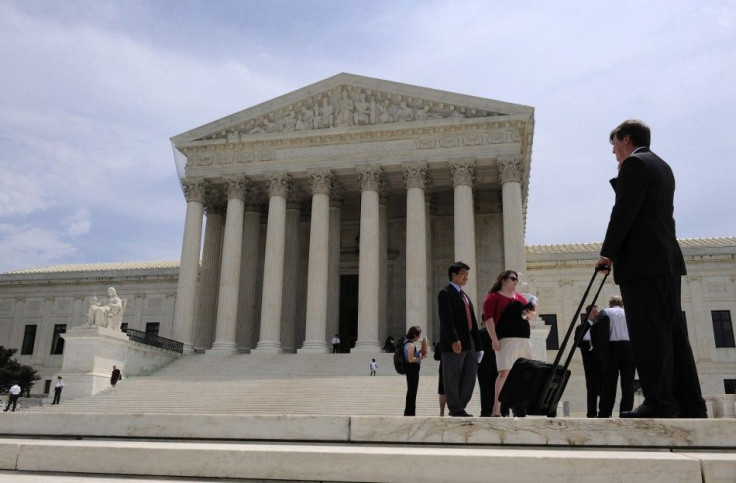GPS Tracking: Supreme Court Rules Warrant Needed, Fourth Amendment Upheld

The Supreme Court ruled on Monday that police must obtain a search warrant in order to use a GPS device to track suspected criminals. In a unanimous decision led by Justice Antonin Scalia, the judges ruled that placing a GPS device on a vehicle without a warrant constitutes a Fourth Amendment violation.
In 2004, the FBI began investigating Antoine Jones for narcotic violations. Agents placed a GPS transmitter on his Jeep in order to track his movements, and although they had obtained a warrant for GPS surveillance, the warrant expired before they placed the device. Jones was tracked 24 hours a day for four weeks, and evidence gathered during that time was used to convict him on one count of conspiracy to distribute and to possess with intent to distribute five or more kilograms of cocaine in 2008. He was sentenced to life in prison.
Jones appealed his conviction, and filed a motion to suppress evidence that was gathered using the GPS, including that which showed him frequently visiting a house where drugs and nearly $1 million in cash were found. The U.S. Courts of Appeals for the D.C. Circuit ruled that the evidence must be thrown out, a ruling the Supreme Court upheld Monday. In the decision, Scalia wrote: We hold that the government's installation of a GPS device on a target's vehicle, and its use of that device to monitor the vehicle's movements, constitutes a 'search' under the Fourth Amendment's protection against unreasonable searches and seizures.
In 2010, a Reddit user named khaledthegypsy posted images of a device that was found magnetically attached to his car by his mechanic, asking, Does this mean the FBI is after us? Other users quickly identified the device as a Guardian ST820, a GPS device that can only be sold to the Army and law enforcement officials. In an interview with Wired magazine, khaledthegypsy, whose real name is Yasir Afifi, said that after he posted the pictures online, he was visited by FBI agents who demanded he return the device.
Are you the guys that put it there? Afifi told Wired he asked the agents. Yeah, I put it there. The agent said. We're going to make this much more difficult for you if you don't cooperate.
Afifi cooperated. In the end, the FBI shook his hand and left, saying, We have all the information we needed. You don't need to call your lawyer. Don't worry, you're boring.
Police have been tracking people with GPS since the 1980s, said Catherine Crump, a staff attorney with the American Civil Liberties Union in New York. There is a pair of Supreme Court cases from the 1980s in which the court held that it was OK for police to track people using a beeper technology, she said. Because of those cases, the police had some ground to say that tracking without a warrant was OK. The court made clear today that attaching a GPS to someone's car is a Fourth Amendment search.
The case Crump was referring to is United States v. Knotts. Police placed a radio transmitter (beeper) into a drum of chloroform Tristan Armstrong purchased to use in drug manufacturing. The beeper could only be tracked from short distances. The court unanimously held that the use of such devices did not invade a legitimate expectation of privacy, and was therefore allowed, without a warrant, under the Fourth Amendment.
That expectation of privacy was a central point of Monday's decision. You know, I don't know what society expects and I think it's changing. Justice Samuel Alito said during oral arguments. Technology is changing people's expectations of privacy. Suppose we look forward 10 years, and maybe 10 years from now 90 percent of the population will be using social networking sites and they will have on average 500 friends and they will have allowed their friends to monitor their location 24 hours a day, 365 days a year, through the use of their cell phones. Then - what would the expectation of privacy be then?
Some, such as the ACLU, however, said that the decision was not broad enough, as it only applies to tracking being done by physical GPS systems placed directly onto vehicles.
We think the court's decision is a huge win for privacy, though it was fairly narrow that in hinged on a physical attachment, said Crump. I think this case is important, but the police are only going to attach a GPS to someone's car in very limited situations. All Americans carry cellphones though, and I think the next battle will be whether the government can access cell phone records. The court's decision seems like it may very well rule that that is a Fourth Amendment violation too.
© Copyright IBTimes 2024. All rights reserved.











